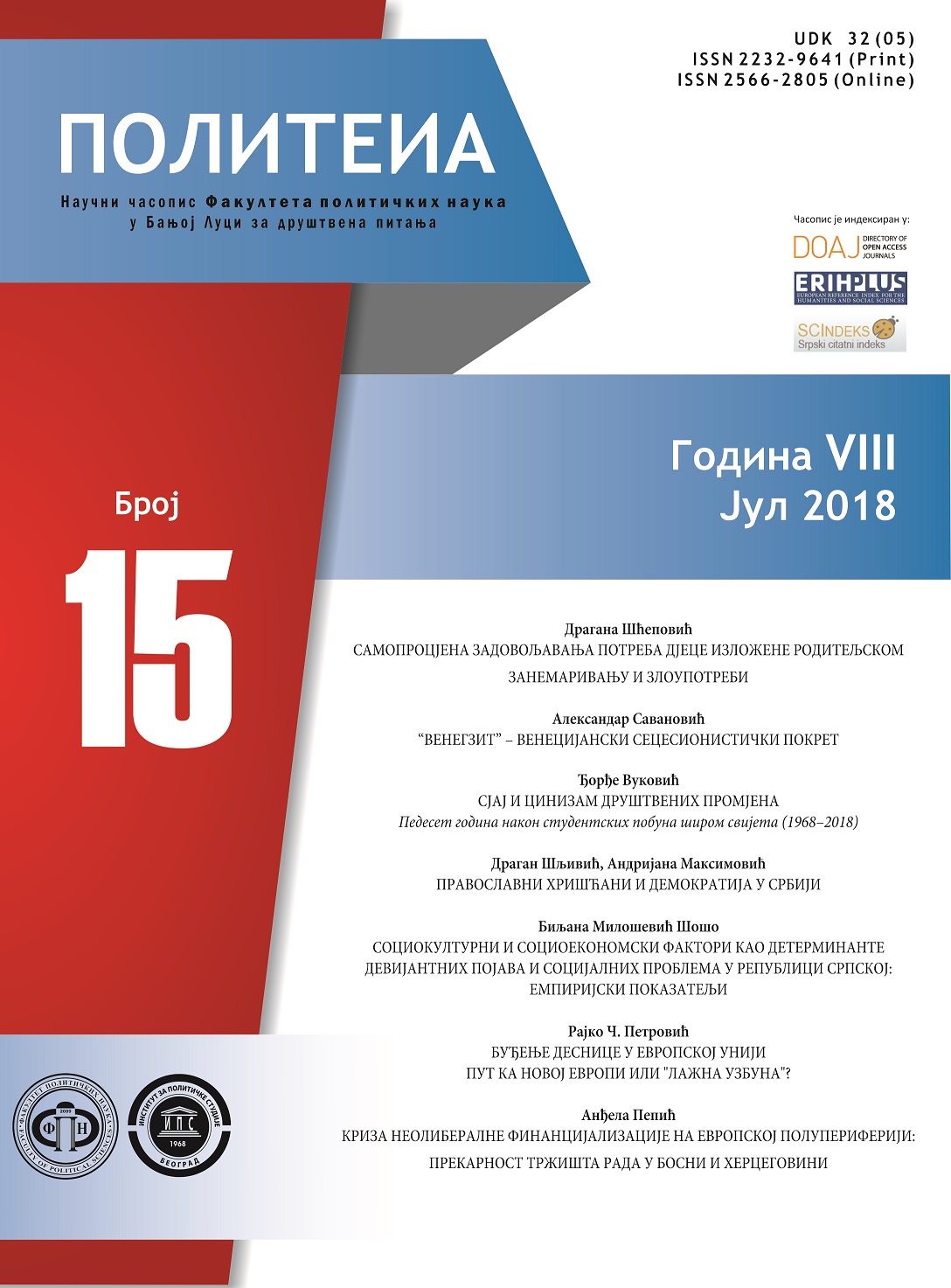'Venexit': Venice secession movement
'Venexit': Venice secession movement
Author(s): Aleksandar SavanovićSubject(s): Political Theory, Governance, Government/Political systems
Published by: Fakultet političkih nauka Univerziteta u Banjoj Luci
Keywords: Venexit; Veneto; Venice; Venice Seccession Movement; Italy;
Summary/Abstract: The research analyses the Veneto's secessionist movement.Focus of the research is on 2014 plebiscit. As a wider theoretical framework for research we will use the theory of the socialcontract as the mainstream approach in contemporary political philosophy, with huge relevance for our understanding ofthe political community. According to this theoretical model,secession is legally possible only-and-only-if there is a consentor consensus from all sides within political community. Usually (in political practice), this means that there is some kind ofagreement between secessionists and the central government.Other sorts of arguments (economic, cultural, and historical)cannot provide a sufficient justification for secession. Mandatory reason for secession is the consent of others. Other reasonsare not sufficient, but these reasons are non-mandatory also.Secession is possible by the consent of others, even without anyother reason except request of secessionists to leave their presentstate. Discussion about Veneto case from 2014 was a typicalexample of this theoretical approach. Requests from the cultural, economical and historical facts were correct (often and inmany cases), and has been possible to defend these argumentsin correct scholarly debate and analysis. Nevertheless, absenceof consent of the government in Rome, prevents any legal consequences for changing the status of Veneto.
Journal: Politeia - Naučni časopis Fakulteta političkih nauka u Banjoj Luci za društvena pitanja
- Issue Year: 8/2018
- Issue No: 15
- Page Range: 32-49
- Page Count: 18
- Language: English

